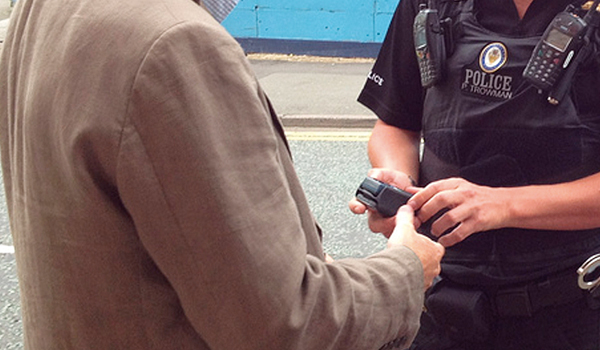ID verification software targets online fraud
New anti-spoofing biometric software has been developed that aims to stop criminals from attempting to carry out unlawful online identification checks.
The ‘all-in-one’ ID verification and advanced biometric facial recognition technology allows businesses to check an individual’s identity and exact location while remotely verifying documents in seconds.
With online fraud and identity theft reaching record levels in the UK, Sinerix, the technology company behind the software, says its ‘FaceMatch’ can verify someone’s identity in seconds.
Sinerix chief executive officer David Kern says the software is capable of “verifying and linking individuals to any government-issued photo ID document in real-time”.
“This development is particularly timely as the Home Office acknowledges the benefits that technologies capable of using algorithms and facial recognition software bring in helping to crack down on rising levels of online fraud and identity theft,” he added.
According to the latest Fraudscape report from Cifas, identity theft continued to rise in 2017, hitting an all-time high of more than 175,000 cases, with 95 per cent of these involving the impersonation of an innocent victim. The report claims that fraudsters are changing tactics and are now targeting telecoms, online shopping and insurance companies, rather than traditional banks and credit card businesses.
Sinerix says its authentication software could assist legal professionals in tackling fraudulent activity, such as mortgage fraud, and slow down the burgeoning market in fake IDs, by deterring criminals from attempting to carry out unlawful identification checks due to its inbuilt anti-spoofing biometric technology.
The suite of modular software tools allows individuals to be positively identified and matched in real-time against any EU, US and other international photo ID, such as a passport, driver’s licence or identity card.
The software allows users to carry out simultaneous background database checks while verifying a biometric face match and digitally signing sensitive and time-critical documents via a secure cloud-based platform.
Visual and GPS (Global Positioning System) location data is taken to give a positive identification and exact location of the user and provides risk assessment data and a transactional audit trail in a GDPR (General Data Protection Regulation)-compliant format.
Sandra Peaston, director of strategy, policy and insight at Cifas, said: “We need to give further consideration to the way in which we identify people online and alternatives to knowledge-based authentication are more and more urgently required. The use of technologies such as device, voice and biometric facial recognition software can reduce fraudsters’ opportunities.”
A new joint report released last week by Cifas and digital forensics company Forensic Pathways highlights that alongside the dark web, the ‘surface web’ now plays an integral role in the selling of personal information.
The new research reveals that personal data is being sold on the surface web via forums and is available through online shops, which are accessible via normal search engines. Furthermore, the findings also show that those selling the data give some individuals’ data away for free by using it as an advert to display what information can be purchased.
Almost a third of victims were found on the surface web, using name, date of birth, email and/or telephone number, with the majority of those identified on a social media platform such as Facebook and LinkedIn.
“With identity fraud reaching record levels in recent years, more personal information available online, and increasing numbers of data breaches, the protection of personal data must be viewed as a collective responsibility,” said Ms Peaston.
“Everyone should play their part, from social media platforms taking more responsibility around security settings, to organisations prioritising the security of personal data.”




